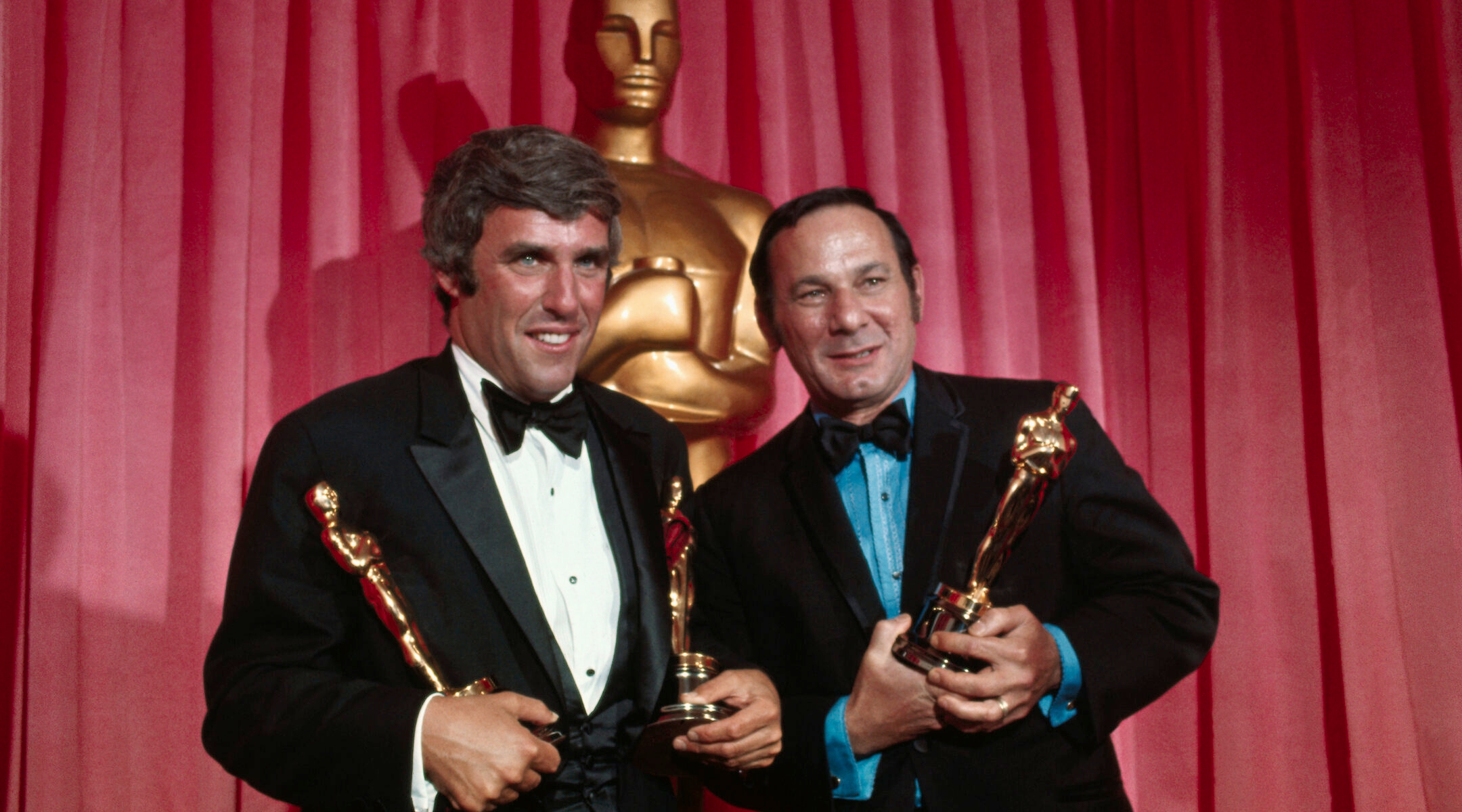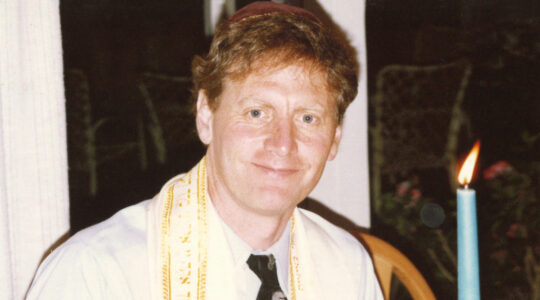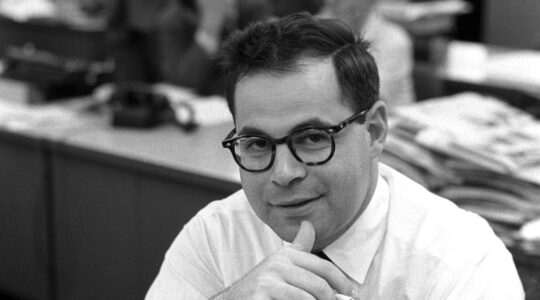(JTA) — Songwriter Burt Bacharach, who with his longtime lyricist Hal David turned out a string of hits in the 1960s and ’70s — including “Alfie” and “Raindrops Keep Fallin’ On My Head” — died on Wednesday at his home in Los Angeles. He was 94.
Bacharach and David, both Jewish New Yorkers, also wrote a host of songs that made Dionne Warwick a megastar, such as “Walk on By,” “Do You Know the Way to San Jose” and “I Say a Little Prayer.”
The duo came to fame while working in the Brill Building — a Midtown Manhattan mecca for music publishing that housed a slew of Jewish songwriters, including the teams of Carole King and Gerry Goffin and Barry Mann and Cynthia Weil. But unlike their peers, who wrote for the burgeoning teen market, their songs were marked by a certain elegance and romance that drew more on the Great American Songbook and Broadway than rock ‘n’ roll.
Fittingly, the pair collaborated with Broadway producer David Merrick on the 1968 musical “Promises, Promises,” which yielded two hits, including the title tune and “I’ll Never Fall in Love Again.” That show too had a strong Jewish pedigree: The book by the legendary playwright Neil Simon was based on the 1960 film “The Apartment,” written by Billy Wilder and I. A. L. Diamond.
Bacharach grew up in Forest Hills, Queens; his father was a journalist and his mother an amateur musician. He recalled in his 2013 autobiography, “Anyone Who Had a Heart,” written with Robert Greenfield, that “no one in my family ever went to synagogue or paid much attention to being Jewish.”
And yet Jonathan Freedman, author of “Klezmer America: Jewishness, Ethnicity, Modernity,” told the New York Jewish Week in 2013 that what made Bacharach’s music Jewish was his “wild play with time signatures; he is to time signatures what [George] Gershwin is to chord changes.” He called Bacharach “really audacious and experimental,” an example of what he sees Jewish artists doing as they “enter popular forms and make them their own.”
Bacharach was also the first composer to be featured in the experimental jazz musician John Zorn’s late-1990s “Great Jewish Music” series; in the CD’s jacket notes, Zorn thanks him for not changing his name and points out that Bacharach is “one of the great geniuses of American popular music — and he’s a Jew.”
In the 1970s Bacharach split with David and Warwick and entered into a new collaboration – and third of four marriages – with lyricist Carole Bayer Sager, another Jewish New Yorker. Their best-known song was the AIDS fund-raising anthem “That’s What Friends Are For.”
Bacharach remained busy nearly to the end of his life, with his later activity including collaborations with the rock star Elvis Costello. He won seven Grammy awards in all, the latest in 2006 for his pop instrumental album “At This Time.” In 1983, at the height of the British “New Wave” in rock, a synth-pop version of the then 20-year-old Bacharach-David song “(There’s) Always Something There to Remind Me” by Naked Eyes climbed into the Billboard Top Ten.
Bacharach would eventually reunite with Warwick and with David. In 2012, 40 years after they were inducted into the Songwriters Hall of Fame and shortly before David died at age 91, Bacharach and David received the Library of Congress’ Gershwin Prize for Popular Song — named for the Jewish composer to whom Bacharach had long been compared.
JTA has documented Jewish history in real-time for over a century. Keep our journalism strong by joining us in supporting independent, award-winning reporting.






